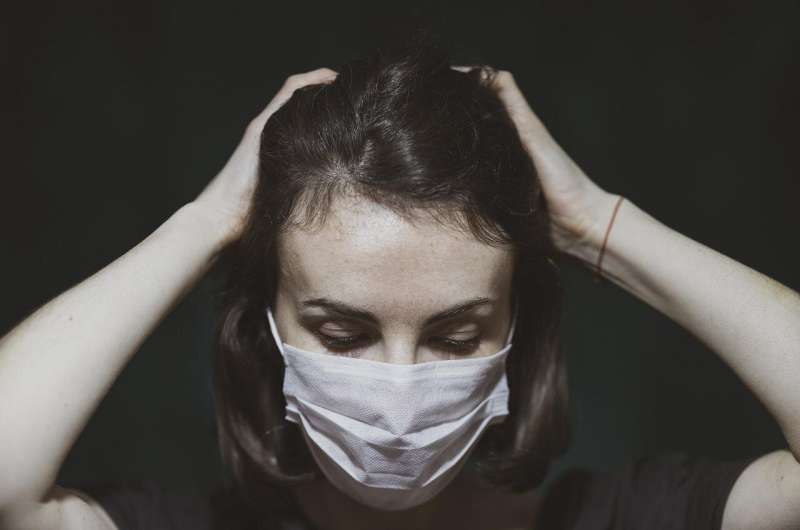This article has been reviewed according to Science X's editorial process and policies. Editors have highlighted the following attributes while ensuring the content's credibility:
fact-checked
proofread
Women in health care face significantly higher burnout rates compared to their male colleagues, finds review

A new study finds women in health care occupations endure significantly more stress and burnout compared to their male counterparts. The analysis by researchers at the George Washington University School of Medicine and Health Sciences also found that job satisfaction and better work-life balance can protect women health care professionals from harmful stress.
The analysis, "The Well-being of Women in Health care Professions: A Comprehensive Review," was published in Global Advances in Integrative Medicine and Health.
"Human beings are not equipped to handle the combined, intense pressures in health care in part due to the pressure to not take time to care for yourself," said Leigh A. Frame, associate director of the GW Resiliency & Well-being Center.
The study is the first comprehensive analysis to examine the relationship between work-related stress and the well-being of women in health care professions, not just in the United States but worldwide. The COVID-19 pandemic cast a spotlight on the issue of health care burnout; Frame says women are under tremendous pressure to succeed simultaneously both at home and on the job. That pressure can lead to toxic stress, occupational burnout, depression, anxiety, and even suicidal thoughts, Frame said.
Frame and her colleagues identified and reviewed 71 studies published in 26 countries and 4 languages between 1979 and 2022. The research looked at female health care professionals including nurses, physicians, clinical social workers, and mental health providers. Many of the studies were conducted using evidence-based measures of well-being such as an index created by the World Health Organization.
Key findings of the study:
- Gender inequality in the workplace led to added stress and burnout for female health care professionals. For example, Frame says women wearing scrubs in a hospital are often assumed to be a nurse even if they are the physician on call.
- Other factors leading to harmful stress include poor work-life integration and a lack of workplace autonomy.
- On the flip side, factors that protect women from stress and burnout include a supportive and flexible working environment, access to professional development, supportive relationships, and an intentional mindfulness practice.
Frame says the health care workplace may amplify the stress for women in the US and around the world. She says that female health care workers often must work long hours, multiple shifts and still balance the on the job demands with family responsibilities such as child care, housework and other duties that often fall to women.
The analysis also showed that compared to their male colleagues, many female health care professionals were assigned to patients with complex medical problems. Handling a complicated medical case takes more emotional energy and time, which ramps up stress in health care settings that reward speed, Frame said.
Research shows that restorative sleep, physical activity, a healthy diet (rich in plants and fresh foods), and other health-promoting habits can help mitigate job stress. However, the problem goes beyond what individual women can do, Frame says. She says health care employers and policymakers need to develop solutions to help prevent burnout, a system-wide problem that leads to issues like health care workforce shortages, which are becoming increasingly common.
The first author of the study is Viktoriya Karakcheyeva, who is also the behavioral services director of the GW Resiliency & Well-being Center. In addition, Haneefa Willis-Johnson and Patrick Corr–both at the GW Resiliency & Well-being Center served as co-authors on the paper.
More information: Viktoriya Karakcheyeva et al, The Well-Being of Women in Healthcare Professions: A Comprehensive Review, Global Advances in Integrative Medicine and Health (2024). DOI: 10.1177/27536130241232929





















